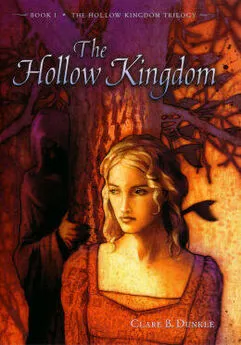Dewey Lambdin - The King`s Commission
- Название:The King`s Commission
- Автор:
- Жанр:
- Издательство:неизвестно
- Год:неизвестен
- ISBN:нет данных
- Рейтинг:
- Избранное:Добавить в избранное
-
Отзывы:
-
Ваша оценка:
Dewey Lambdin - The King`s Commission краткое содержание
1782 First officer on brig o'war . . . Fresh from duty on the frigate Desperate in her fight with the French Capricieuse off St. Kitts, Midshipman Alan Lewrie passes his examination board for Lieutenancy and finds himself commissioned first officer of the brig o'war Shrike. There's time for some dalliance with the fair sex, and then Lieutenant Lewrie must be off to patrol the North American coast and attempt to bring the Muskogees and Seminoles onto the British side against the American rebels (dalliance with an Indian maiden is just part of the mission). Then it's back to the Caribbean, to sail beside Captain Horatio Nelson in the Battle for Turks Island. . . .Naval officer and rogue, Alan Lewrie is a man of his times and a hero for all times. His equals are Hornblower, Aubrey, and Maturin--sailors beloved by readers all over the world.
The King`s Commission - читать онлайн бесплатно полную версию (весь текст целиком)
Интервал:
Закладка:
"My dear fellow, that's exactly what I like about London!" Alan said with a small laugh. "No, I meant some new scandal or something."
"I don't follow Society," McGilliveray sniffed, prim as any Scottish deacon, which put paid to any more hopes of conversation from that source.
Damned odd sort, Alan thought, trying to find a niche for the man in his mind. He was dressed almost poor (and had an excruciatingly bad tailor) but carried himself without deference to Cowell. With a name like McGilliveray, Alan expected him to be a Scot, but if he was, he was a Scot/Dago, for the man was almost coppery red in complexion, with the blackest hair Alan ever did see, parted in the center and drawn back into a long, almost seamanly queue that reached down to the middle of his back. His face was broad, and his nose was hooked as a hawk, broad as it was to match those high cheekbones.
Alan turned away as the soup was removed and a smoking joint of mutton made its appearance on the table. Liveried servants passed behind the diners with small boiled potatoes and peas.
Lilycrop rose and hacked at the joint to carve the diners their choice. As a meal, Alan could not fault it; the mutton was followed by boiled lobsters and fresh-dredged crabs, with the Bordeaux replaced with bottles of cooled hock. Before the hock was removed, it went well with the small game birds, and claret replaced the hock to be served with the roast beef without which an English meal would not be complete. To sweeten the palate, slices of tropical fruit were served, then the cheese and biscuit.
The water glasses were removed, and servants topped up their glasses with claret. Admiral Rowley cocked a weather eye at Lewrie.
As the most junior officer at table, Alan knew his duty. He rose to his feet and raised his glass.
"My lord, gentlemen, the King," he said as they rose.
"The King," they chorused, Lieutenant Colonel Peacock almost smashing his skull open on an overhead deck beam, and whispering "God Bless Him." Obviously Peacock was from one of those regiments that were allowed that nicety by their sovereign in times past.
They sat back down and the tablecloth was whisked away and the last of the claret drunk while the port was set out for them, along with a large silver bowl of nuts to join the cheese and biscuit.
"Should nature have her way with your digestion, I urge you to attend to your needs now, gentlemen, so we shall have no interruptions," Admiral Rowley said, more in the way of an order. It took about ten minutes before everyone had voided whatever irked them and were back at table. Rowley sent the servants away rather pointedly.
"Gentlemen, I trust you have enjoyed what bounty I was able to offer?" Rowley began once their odd assemblage were the only people in the huge dining alcove of the great cabins. "Now, let us turn our heads to business. Lieutenant Lilycrop, Lewrie; Mister Cowell is a representative of His Majesty's government. Sorry you were kept in the dark, and the dinner conversation did not sparkle, but certain precautions had to be taken so that word of our meeting did not get round to the wrong people. Mister Cowell, sir. If you would be so kind as to explain your purpose."
Cowell was one of those people who thought better on his feet, or felt he had to pace when he orated, like a Member of Parliament.
"Gentlemen, I am sure you are aware as I this war is lost," he began rather dramatically. "Not the one against our classic enemies, the French, Spanish or Dutch, but the war in the Colonies. Our last armies gone except for the New York and Charleston garrisons, Lord Shelbume in charge now that Lord Rockingham has died, and our ambassadors treating at Versailles. The official end could come soon, perhaps on the next packet from England."
Just what I needed, Alan thought glumly, wondering if he could crack a nut to snack on during Cowell's harangue. A bloody sermon. He settled for a sip of port.
"This is not to say that England shall curl up like a worm in hot ashes and shrivel away, sirs," Cowell said, giving them a slight grin of encouragement, to which everyone grunted their "here, here's," much like a back-bencher Vicar of Bray in the Commons.
"Reports from India suggest we hold the upper hand against the French fleet at long last, have subdued the rebellious sultans, and look to evict the French from Pondichery once and for all," Cowell went on.
"Should never have given it back after the last war," Lilycrop growled, slicing himself a morsel of a rather fresh Stilton.
"I quite agree, Lieutenant," Cowell said, looking anything but pleased to be interrupted. "And here in the West Indies, the Sugar Islands are safe since de Grasse's fleet has been scattered. We hold the old French Canadian colonies and the maritime approaches to the Americas. St. Kitts shall come back at the treaty table, I assure you. No, the government's biggest worry right now is what the Rebels mean to do with their new lands, and how France or Spain may profit thereby."
"The Frogs might try buying territory, you mean," Alan said, almost without thinking, or more like thinking aloud. Cowell swiveled a glance in his direction, obviously unused to being interrupted so often by people below his station in life, and Alan was glad he had spoken. "We took a French ship last year loaded with artillery and draft horses and what-not. She also carried more than seventy thousand pounds, to be used for bribes or gifts to influential members of the Rebels' Congress or whatever they call it," Alan went on.
"I refer more to awards of territory to recompense the French and Spanish for their assistance and material support, sir," Cowell huffed, and the others looked at Alan as though he had broken wind at table-such was simply not done! Lieutenant Colonel Peacock glared as though Alan were one of his junior officers, he'd be in irons that instant.
"We shall not give them one acre, sir, but what the Rebels may do is open to question, and a formal military expedition to express our displeasure at any reward of territory is simply not in the cards. What we may do informally, though, is another matter entirely," Cowell said with a sly grin. "And there are methods by which the French and Spanish, who are already out untold riches, and in financial difficulty by their support of this unlawful Rebellion, may be discomfited and confounded in those territories they already possess, souring their appetites for more."
Cowell turned to stare at Alan, expecting him to open his mug and make some comment, but Alan had learned his lesson and gave him a beatific smile of encouragement, one of his best eager-but-innocent expressions, which made Lilycrop cough into his fist to hide a smile.
"Pipes, gentlemen?" Admiral Rowley offered, obviously fidgeting for the soothing fumes of tobacco. He rose and fetched out his own tub of tobacco, a large-mouthed stone crock aromatic with Virginia leaf, and then chose a clay church-warden pipe from the ample selection contained in a plush-lined box large enough for a brace of dueling pistols.
"Not for me, thankee, milord," Alan said to his offer.
"Best to learn how," McGilliveray told him. "It shall come in handy soon."
"Well, if you insist." Alan shrugged and took one of the pipes. As the crock made its way down the table, along with the port, he stuffed crumbled leaf into the bowl, got a light with a paper spill from an overhead silver lantern, and fired the pipe up.
Damned silly practice, he thought, after almost coughing his lungs up. From then on, he merely rolled the smoke around in his mouth, not trying to inhale as the others did, slightly sickened by the taste and the sharpness of the hot smoke on his palate, which until then had been doing just fine with supper and wine to savor.
"A blend, Sir Joshua?" Cowell smirked, pacing about the cabins and puffing away like a house fire. "Quite pleasant. Quite."
"Just a touch of Turkey, sir, to give the Virginia some character," Admiral Rowley nodded, pleased at Cowell's opinion of his blend. "From Latakia, I believe. Taken from a prize last month. Usually it's more suited to snuff material, but it does give the blend some fire."
"Yes, it does have bite under the mellow," Cowell agreed. "Now, as to how we may foment confusion to our foes, gentlemen, let us take a look at the Spanish situation in the Americas. If you may allow me to refer to this map." He produced a large map, big as an ocean chart and spread it out on the polished mahoghany dining table, anchoring the corners with glasses and bowls.
"We shall most likely lose East, or British, Florida at the Peace Conference," Cowell pointed out. "Spanish forces have evicted us from our last bastion at St. Augustine, and from the mouth of the St. John's River."
"God give them joy of it." Sir Joshua shivered. "A pestilential place, from my experience."
"As you see, just before the war, the southernmost colonies of Florida and Georgia were just beginning to draw colonists," Cowell lectured, using the long stem of his church-warden pipe as a pointer. "Note the topography of the Virginias and the Carolinas, separated from the interior by the Appalachians, all the way down to here, where they end in Georgia, from whence a great coastal plain stretches all the way to the great river of the Mississippi, and probably beyond. The new Rebel nation has not crossed over these mountains yet, though they probably shall in future. To the north, the Iroquois nations, still favorable to British interests and dependent on us for trade goods. They shall give our Rebels pause, should they attempt colonizing westward."
"Bankrupt the devils to maintain a standin' army against the northern Indians," Lieutenant Colonel Peacock barked with amusement. "Let 'em see what the cost of their folly is!"
"With the French evicted from Canada, we can maintain good relations with, and ministries to, the northern Indians, as a check to any Rebel plans for expansion to the north and west," Cowell said with a firm nod or two.
"And we propose to do the same with the southern Indians," the admiral added, puffing away contentedly.
"That is exactly our plan, sirs," Cowell went on quickly. "Now, there will be Rebel influence in the South, unfortunately. Charleston was the center for trade inland for many years. That city's merchant adventurers extended far to the west and south, and we may expect no less in future, a trade, I wish to point out, that shall no longer be British. Where the border shall be drawn, we have no idea, but Spain rules the rest of the coast, West Florida and all. Fortunately for us, they rule pretty much in name only. Their normal methods of conquest, such as they employed in New Granada and New Spain were not followed on the mainland. Small church settlements, a few troops to keep order, but few European settlers, and no encomienda system to exploit the downtrodden Indians in slavery on large estates and fiefs. The land does not support the Colonies for that reason, and the Spanish are losing money on the bargain, though the soil inland past the coastal marshes is quite fertile. One of the reasons they have not moved inland is the southern Indians. The entire region swarms with various tribes, some of them powerful enough to give anyone pause, and none of them willing to have anyone settle among them-British, Spanish, or Rebel. They are, or could be, a potent counterpoise to any further settlement west of Georgia. Properly armed and trained with European arms, these Indians could provide us with a drain on the new Rebel economy, a force that could limit any westward expansion, and a means to bankrupt the Spanish treasury, making the Spanish think twice about keeping the region; in short, a southern Iroquois League."
Читать дальшеИнтервал:
Закладка:



